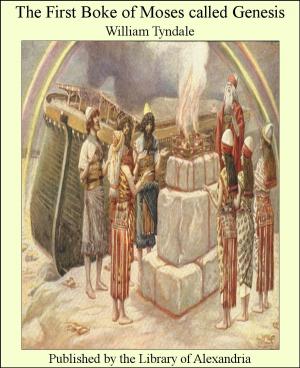The History of Education: Educational Practice and Progress Considered as a Phase of the Development and Spread of Western Civilization
Nonfiction, Religion & Spirituality, New Age, History, Fiction & Literature| Author: | Ellwood Patterson Cubberley | ISBN: | 9781465628268 |
| Publisher: | Library of Alexandria | Publication: | March 8, 2015 |
| Imprint: | Language: | English |
| Author: | Ellwood Patterson Cubberley |
| ISBN: | 9781465628268 |
| Publisher: | Library of Alexandria |
| Publication: | March 8, 2015 |
| Imprint: | |
| Language: | English |
The Civilization which we of to-day enjoy is a very complex thing, made up of many different contributions, some large and some small, from people in many different lands and different ages. To trace all these contributions back to their sources would be a task impossible of accomplishment, and, while specific parts would be interesting, for our purposes they would not be important. Especially would it not be profitable for us to attempt to trace the development of minor features, or to go back to the rudimentary civilizations of primitive peoples. The early development of civilization among the Chinese, the Hindoos, the Persians, the Egyptians, or the American Indians all alike present features which to some form a very interesting study, but our western civilization does not go back to these as sources, and consequently they need not concern us in the study we are about to begin. While we have obtained the alphabet from the Phoenicians and some of our mathematical and scientific developments through the medium of the Mohammedans, the real sources of our present-day civilization lie elsewhere, and these minor sources will be referred to but briefly and only as they influenced the course of western progress. The civilization which we now know and enjoy has come down to us from four main sources. The Greeks, the Romans, and the Christians laid the foundations, and in the order named, and the study of the early history of our western civilization is a study of the work and the blending of these three main forces. It is upon these three foundation stones, superimposed upon one another, that our modern European and American civilization has been developed. The Germanic tribes, overrunning the boundaries of the Roman Empire in the fourth and fifth centuries, added another new force of largest future significance, and one which profoundly modified all subsequent progress and development. To these four main sources we have made many additions in modern times, building an entirely new superstructure on the old foundations, but the groundwork of our civilization is composed of these four foundation elements. For these reasons a history of even modern education almost of necessity goes back, briefly at least, to the work and contributions of these ancient peoples. Starting, then, with the work of the Greeks, we shall state briefly the contributions to the stream of civilization which have come down to us from each of the important historic peoples or groups or forces, and shall trace the blending and assimilating processes of the centuries. While describing briefly the educational institutions and ideas of the different peoples, we shall be far less concerned, as we progress down the centuries, with the educational and philosophical theories advanced by thinkers among them than with what was actually done, and with the lasting contributions which they made to our educational practices and to our present-day civilization. The work of Greece lies at the bottom and, in a sense, was the most important of all the earlier contributions to our education and civilization. These people, known as Hellenes, were the pioneers of western civilization. Their position in the ancient world is well shown on the map reproduced opposite. To the East lay the older political despotisms, with their caste-type and intellectually stagnant organization of society, and to the North and West a little-known region inhabited by barbarian tribes. It was in such a world that our western civilization had its birth. These Greeks, and especially the Athenian Greeks, represented an entirely new spirit in the world.
The Civilization which we of to-day enjoy is a very complex thing, made up of many different contributions, some large and some small, from people in many different lands and different ages. To trace all these contributions back to their sources would be a task impossible of accomplishment, and, while specific parts would be interesting, for our purposes they would not be important. Especially would it not be profitable for us to attempt to trace the development of minor features, or to go back to the rudimentary civilizations of primitive peoples. The early development of civilization among the Chinese, the Hindoos, the Persians, the Egyptians, or the American Indians all alike present features which to some form a very interesting study, but our western civilization does not go back to these as sources, and consequently they need not concern us in the study we are about to begin. While we have obtained the alphabet from the Phoenicians and some of our mathematical and scientific developments through the medium of the Mohammedans, the real sources of our present-day civilization lie elsewhere, and these minor sources will be referred to but briefly and only as they influenced the course of western progress. The civilization which we now know and enjoy has come down to us from four main sources. The Greeks, the Romans, and the Christians laid the foundations, and in the order named, and the study of the early history of our western civilization is a study of the work and the blending of these three main forces. It is upon these three foundation stones, superimposed upon one another, that our modern European and American civilization has been developed. The Germanic tribes, overrunning the boundaries of the Roman Empire in the fourth and fifth centuries, added another new force of largest future significance, and one which profoundly modified all subsequent progress and development. To these four main sources we have made many additions in modern times, building an entirely new superstructure on the old foundations, but the groundwork of our civilization is composed of these four foundation elements. For these reasons a history of even modern education almost of necessity goes back, briefly at least, to the work and contributions of these ancient peoples. Starting, then, with the work of the Greeks, we shall state briefly the contributions to the stream of civilization which have come down to us from each of the important historic peoples or groups or forces, and shall trace the blending and assimilating processes of the centuries. While describing briefly the educational institutions and ideas of the different peoples, we shall be far less concerned, as we progress down the centuries, with the educational and philosophical theories advanced by thinkers among them than with what was actually done, and with the lasting contributions which they made to our educational practices and to our present-day civilization. The work of Greece lies at the bottom and, in a sense, was the most important of all the earlier contributions to our education and civilization. These people, known as Hellenes, were the pioneers of western civilization. Their position in the ancient world is well shown on the map reproduced opposite. To the East lay the older political despotisms, with their caste-type and intellectually stagnant organization of society, and to the North and West a little-known region inhabited by barbarian tribes. It was in such a world that our western civilization had its birth. These Greeks, and especially the Athenian Greeks, represented an entirely new spirit in the world.















